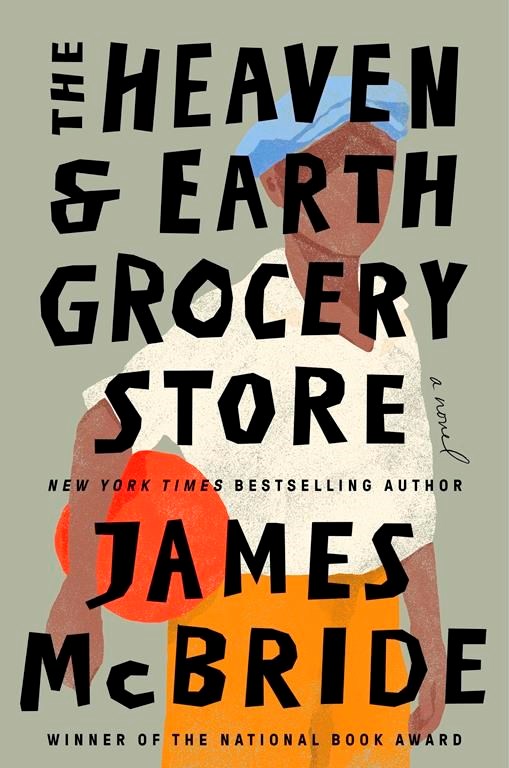“The Heaven & Earth Grocery Store” by James McBride (Riverhead Books)
“The Heaven & Earth Grocery Store,” James McBride’s tour de force of a new novel, opens in 1972, when authorities discover a human skeleton and mezuzah at the bottom of a well in the small community of Pottstown in southeast Pennsylvania. Suspecting foul play, they question an old Jewish man who lives in the ramshackle neighborhood of Chicken Hill, where the town’s Jews, Blacks and immigrant whites once lived together in harmony.
Waving off the suggestion that something is amiss because the mezuzah wasn’t attached to its customary place on the door of a Jewish home, Malachi offers up this sage observation: “Jewish life is portable.” The very next day, Hurricane Agnes barrels into the region, churning up flood waters that wipe out every trace of the potential crime, prompting this humorous aside from a chorus of elderly Black women: “White folks was jumping off their rooftops in Pottstown like they was on the Titanic.”
So begins McBride’s mesmerizing, moving, almost magical tale set nearly half a century before the flood about the intertwined lives of a group of poor Black, Jewish and Italian misfits and dreamers who band together to rescue an orphaned deaf Black boy from a state institution while fending off interference from the town’s bigoted white leaders.
McBride, the prize-winning author of “Deacon King Kong,” “The Good Lord Bird” and “The Color of Water” and an accomplished musician, writes sentences and paragraphs that swing like jazz melodies. Whether he’s describing Malachi, the mysterious klezmer dancer interrogated by police, or Miggy Fludd, a formidable Gullah fortuneteller, he creates utterly believable characters who speak pitch-perfect dialogue.
At the center of the novel is Chona Ludlow, who runs the Heaven & Earth Grocery Store in Chicken Hill, extending credit to customers without expecting to be paid while her husband, Moshe, integrates his dance hall and theater and books the leading jazz acts of the day. How they conspire with Nate Timblin, a Black man who helps manage the business, and his wife, Addie, to save the 12-year-old boy is a miracle of storytelling that will leave you laughing and crying.
The novel is dedicated to Sy Friend, the retired director of a camp for disabled children in Pennsylvania, where McBride was a counselor in college. “His staff looked like the United Nations, long before the word `diversity’ echoed around America,” McBride writes. He “taught all of us the meaning of `tikkun olam,’” the Hebrew expression for “repairing the world” and the guiding spirit of this gorgeous book.
Ann Levin, The Associated Press



